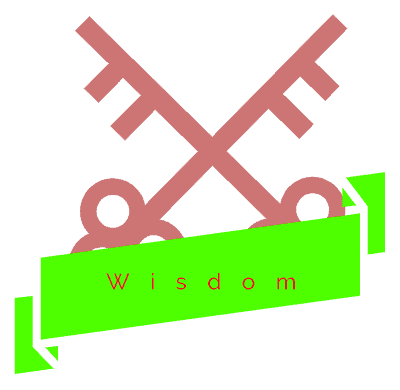How to Boost Productivity Without Overloading Your Schedule
“The key is not to prioritize what’s on your schedule, but to schedule your priorities.” – Stephen R. Covey
In today’s fast world, we often feel swamped by too much to do. But, you can get more done without overloading yourself. This guide will give you tips and tricks to be more efficient and in charge of your time.
Key Takeaways
- Prioritize tasks effectively to focus on high-impact activities
- Eliminate distractions and create a conducive work environment
- Leverage time management techniques like the Pomodoro method
- Cultivate mindfulness and practice self-care for better energy management
- Establish clear boundaries and schedules to maintain work-life balance
Prioritizing Tasks Effectively
Learning to pick what’s most important is key to being productive. By finding out what really matters and what can wait, you can use your time better. This helps you do more of what’s important.
Identifying High-Impact Activities
Look at your daily tasks and find the ones that really help you reach your goals. These are your high-impact activities. They’re the tasks that can make a big difference. Focus on these to use your time well and make real progress.
Separating Urgent from Non-Urgent Tasks
- Urgent tasks need quick action, like answering a client fast or meeting a deadline.
- Non-urgent tasks are still important but don’t have a deadline, like planning or learning new things.
- It’s important to know the difference. Do urgent tasks first, then work on important but not urgent tasks that help you grow.
Getting good at prioritizing tasks effectively changes how you handle eliminating distractions and boosts your productivity. By focusing on what really matters and sorting tasks, you make sure you’re using your time and energy well. This sets you up for success over time.

“The key is not to prioritize what’s on your schedule, but to schedule your priorities.” – Stephen R. Covey
Eliminating Distractions
Distractions can kill our productivity, taking away our focus and energy. To be more productive, we need to get rid of distractions. I’ll share tips to help you stay on track and work better.
First, check your workspace and digital stuff. Look at what grabs your attention. Things like a messy desk or social media can mess up your focus.
- Start by decluttering your desk, keeping only the essentials close. A clean desk helps your mind stay clear and you work better.
- Then, turn off or silence your device notifications. Social media and emails can interrupt you a lot. So, try to cut down on these distractions.
- Think about using tools to block certain websites or apps during work hours. This can keep you from wasting time online.
It’s also key to watch your energy and focus levels. Some times or tasks distract you more than others. Knowing when you focus best helps you plan your work.
Getting rid of distractions is a process that takes time. You might need to try different things to see what works for you. Be patient and keep trying until you find what helps you work best.

“The ability to focus is a superpower. It’s one of the key differentiators between those who succeed and those who don’t.” – Cal Newport, author of “Deep Work”
Using these tips and staying alert to distractions will help you work better and manage your energy. Stay focused and enjoy the benefits of giving your full attention to what you do.
Delegation Skills
Learning to delegate is key to doing more and having a better work-life balance. By giving tasks to others, you can focus on what really matters. We’ll look at how delegation can change your work for the better.
Identifying Strengths and Weaknesses
Start by knowing what you’re good at and what’s hard for you. Find out which tasks you do well and which ones make you tired. This helps you pick the right people for the job. It lets you use your strengths and helps your team grow.
Building Trust and Communication
Good delegation needs trust and clear talking. Make sure you and your team get along and know what you want. Explain the task, what you hope to achieve, and when it’s due. Let your team ask questions and share their thoughts to make a team effort.
Delegation isn’t about giving up control. It’s about giving your team power and focusing on big tasks. By getting good at delegating, you can do more, have a better balance between work and life, and grow in your job.
| Strengths | Weaknesses |
|---|---|
| Strategic planning | Attention to detail |
| Problem-solving | Time management |
| Team building | Procrastination |
“Delegation is not a sign of weakness, but a sign of strength. It shows that you trust your team and are confident in their abilities.”
Time Management Techniques
Learning how to manage your time is key to being more productive. I’ll share two great ways to do this: the Pomodoro Technique and batching tasks together.
The Pomodoro Technique
The Pomodoro Technique is a way to stay focused and productive. You work in 25-minute bits, called “Pomodoros,” with short breaks in between. This helps you stay sharp and avoid getting too tired.
It breaks tasks into smaller pieces. This makes them easier to handle and cuts down on distractions.
- Set a timer for 25 minutes and focus only on your task.
- When the timer ends, take a 5-minute break.
- Do this cycle four times, then take a 15-20 minute break.
Batching Similar Tasks
Batching tasks means doing similar activities together. This makes your work flow better and cuts down on switching between tasks. It keeps you focused and lowers the mental effort of changing tasks often.
For instance, check your emails all at once instead of all day. Or, do all your writing, editing, and scheduling for social media in one go. This makes you more productive.
| Technique | Benefits |
|---|---|
| Pomodoro Technique |
|
| Batching Similar Tasks |
|
Using these time management tips can make you more productive without being too busy. The main thing is to pick what works for you.
“Time management is not about being productive 24/7. It’s about being intentional with your time and energy.”
How to Become More Productive Without Being Too Busy
In today’s fast world, it’s easy to feel overwhelmed by too much to do. But, the secret to being more productive isn’t to work more. It’s to work smarter. By using smart strategies and changing your daily habits, you can do more without feeling tired.
Start by picking what’s most important. Find the tasks that really matter for your goals. Focus on these first to use your time and energy well.
Getting rid of distractions is also key. In our digital world, it’s easy to get lost in social media or emails. Try turning off notifications, setting focused time in your calendar, and avoiding doing too many things at once.
Learning to delegate tasks can really help too. Know what you’re good at and what you’re not. Then, give tasks to others who can do them better. This saves your time and builds trust in your team.
With these tips, you can do more without feeling too busy or stressed. The main thing is to balance your time and energy. Keep improving how you work to make sure you’re smart about it, not just hard.
“The key to becoming more productive isn’t necessarily to work harder or longer hours – it’s about working smarter.”
Mindfulness Practices
Adding mindfulness to your life can really help you work better and feel better. It makes you more aware of the present moment. This helps you handle stress, focus better, and balance work and life.
Meditation for Stress Relief
Meditation is a key mindfulness practice. It cuts down stress, helps with emotions, and makes you think better. Just a few minutes a day of quiet sitting and focusing on your breath can change your life.
Practicing Gratitude
Being thankful is another great mindfulness practice. It makes you see the good things in life more. This helps you be more thankful for what you have, stronger when things get tough, and more driven to reach your goals.
Adding mindfulness practices to your daily life can change everything. It makes you work better and feel better. You’ll be more productive, happier, and find a way to succeed that lasts.
Energy Management Tips
Keeping a good balance between work and life is key for staying productive and happy. Managing your energy well helps you stay sharp and avoid feeling tired. Here are some easy tips to help you manage your energy better:
Prioritize Self-Care
Looking after yourself is very important. Make sure you sleep well, eat right, and exercise often. These habits keep you energized and focused for your daily tasks.
Embrace Breaks and Downtime
- Take regular breaks to recharge and refresh. Just a few minutes of stretching or deep breathing can help a lot.
- Make sure to have longer breaks, like for lunch or a walk, to really step away and avoid burnout.
Manage Your Workload
Know your limits and say “no” when you can’t do more. Delegate tasks when you can, and focus on what’s most important to you.
| Energy Management Strategies | Benefits |
|---|---|
| Practicing Mindfulness | Reduces stress and improves focus |
| Hydration and Healthy Snacks | Boosts energy and cognitive function |
| Leveraging Natural Light | Enhances mood and productivity |
Using these tips every day can help you keep a good balance between work and life. It will make you more productive and help you avoid burnout. Remember, taking care of your energy is the key to reaching your goals.
“The key to sustainable productivity is not working harder, but managing your energy more effectively.”
Work-Life Balance Strategies
Finding a good work-life balance is key to being productive. By using smart strategies, you can manage work and personal life well. This helps you do more without feeling too stressed.
Setting Boundaries
Setting clear boundaries is important for a good work-life balance. It means choosing how you spend your time and saying “no” to things that don’t matter. This keeps your personal life safe from work.
Scheduling Downtime
It’s also key to plan downtime for yourself. This could be short breaks during work, free days, or weekend trips. Planning downtime helps you relax, lowers stress, and makes you more focused at work.
Remember, everyone is different. Try out various strategies to see what suits you best. By focusing on your well-being and balancing work and life, you can do more without feeling too busy.
| Work-Life Balance Strategies | Benefits |
|---|---|
| Setting Boundaries | Protects personal time, prevents work from encroaching on leisure activities |
| Scheduling Downtime | Recharges batteries, reduces stress, and boosts focus and energy |
“The key is not to prioritize what’s on your schedule, but to schedule your priorities.”
Decluttering Your Workspace
As a pro, I know a clean, organized workspace boosts productivity and energy. A messy space distracts and stresses you, making it hard to focus. Here are tips to declutter your space and boost your work.
Keeping your workspace tidy is key to managing your time well. By cleaning your desk and shelves, you cut down on distractions. This makes it easier to find things and helps you stay calm and focused.
Start with a Clean Slate
First, clear everything off your desk and shelves. This lets you see what you really need close by. It’s like starting with a blank page.
Categorize and Prioritize
Then, sort items by what you use most. Keep daily or weekly items on your desk. Put less used things away in drawers or on shelves.
- Identify the items you use daily and keep them within easy reach.
- Group similar items together, such as office supplies, electronics, or personal items.
- Assign a dedicated storage space for each category to maintain order.
Implement a Filing System
Set up a good filing system for your papers, both digital and physical. Use strong folders, cabinets, or boxes to keep papers in order and easy to find.
| Workspace Decluttering Tips | Benefits |
|---|---|
| Clear your desk regularly | Reduces visual clutter and distractions |
| Categorize and prioritize items | Helps you identify essential tools and reduce clutter |
| Implement a filing system | Keeps important documents organized and accessible |
| Digitize documents when possible | Minimizes physical clutter and improves document management |
| Regularly purge and donate unused items | Maintains a clean, uncluttered workspace |
Using these tips, you can make your workspace inspiring and productive. It will help you focus better and manage your time and energy well.
The Importance of Sleep
Getting enough sleep is key to being productive and managing your energy. Sleep is vital for your focus, thinking skills, and how strong you feel during the day. By sleeping well, you make sure your body and mind are ready for the day ahead.
Establishing a Sleep Routine
Creating a regular sleep schedule helps you sleep better. Go to bed and wake up at the same time every day, even on weekends. This keeps your body’s clock in check, which is important for sleeping well.
- Set a consistent bedtime and wake-up time, and stick to it as closely as possible.
- Do relaxing things, like reading or stretching, before bed to help your body relax.
- Stay away from screens and intense exercise before bed.
Creating a Sleep-Friendly Environment
Your sleep space affects how well you sleep. Make your bedroom a place that helps you sleep well. This means it should be cool, dark, and quiet.
- Keep your bedroom cool, dark, and quiet for the best sleep.
- Get a good mattress and comfy bedding for your body.
- Use blackout curtains or an eye mask to keep out light.
- Try white noise or soft music to block out loud sounds.
Putting sleep first and using these tips can make you more productive and energetic. A good night’s sleep is key to managing your time well.
Leveraging Technology
In today’s fast world, technology helps us work better and manage our time well. It lets us make our work flow smoother, cut down on distractions, and use our energy better.
Using productivity apps and tools is a great way to manage time. Apps like Trello and Asana help you keep tasks in order. Evernote and OneNote are great for taking notes and staying on track.
Automation is another tech tool that helps with time management. With IFTTT and Zapier, you can set up workflows. These automate tasks like sending emails, updating your calendar, or saving files.
Technology is also key for managing energy. Wearables like fitness trackers and smartwatches track your activity, sleep, and health. This info helps you balance work and life better.
- Use apps and tools to keep tasks in order and stay on top of work.
- Automate tasks with IFTTT, Zapier, or similar tools.
- Wearables help you keep an eye on your activity and sleep for better energy.
| App | Description | Key Features |
|---|---|---|
| Trello | A visual tool for managing tasks and working with your team. |
|
| Evernote | An app for taking notes and organizing your ideas across devices. |
|
| Fitbit | A device that tracks your fitness, sleep, and health. |
|
By using these tech tools, you can boost your productivity and energy. This helps you reach your goals and focus on what’s important.
The Power of Breaks
Taking regular breaks is key to being more productive and managing our energy well. By using both short and long breaks, we can focus better, be more creative, and work longer without getting tired.
Micro-Breaks and Their Benefits
Micro-breaks are short pauses that help us a lot. They last just a few minutes and help us reset our minds. After a 5-minute break every hour, we work better and do a better job.
Doing simple things like stretching, walking, or deep breathing can really help. These small breaks stop us from getting too tired or stressed. They keep us balanced and prevent burnout.
Longer Breaks for Rejuvenation
Long breaks are also important for our well-being and productivity. They can be a lunch break, a day off, or a vacation. These breaks let us recharge and think about things outside work.
Regular long breaks help us manage our time and energy better. They stop us from getting too tired, make us feel more purposeful, and help us work well for a long time.
Breaks, big and small, recharge our minds and bodies. They let us work with more energy and joy. By making time for breaks, we become more productive, happy, and balanced in life.
Celebrating Small Wins
Improving our work-life balance and managing our energy is key. Let’s celebrate the small wins along the way. Acknowledging your achievements, big or small, can motivate you and keep you on track.
Creating a “success journal” is a great way to celebrate. Write down any accomplishments, big or small, each day or week. This could be finishing a tough task, handing over a project, or just taking a break.
- Recognize your progress, even if it’s small. Celebrate every step towards your goals.
- Share your wins with people you trust. It boosts your mood and shows you’re valued.
- Give yourself a small reward, like a healthy snack or a short break. It links your wins to good feelings.
Celebrating small wins helps you feel grateful and accomplished. This can improve how you manage your energy and balance work and life. Positive reinforcement can make you more productive and motivated.
“Celebrate every win, no matter how small. They all add up.” – Unknown
| Benefit | Description |
|---|---|
| Boosts Morale | Seeing your wins keeps you motivated and inspired to keep going. |
| Enhances Mindset | Celebrating small wins makes you more positive and grateful. This helps your work-life balance and energy. |
| Reinforces Progress | Writing down your wins shows you’re making progress, even if it’s a little at a time. It keeps you focused on your goals. |
Conclusion
We’ve looked at many ways to be more productive without feeling too busy. By focusing on what’s important, cutting out distractions, sharing tasks, and managing your time and energy, you can find a better balance. This helps you reach your full potential.
Being more productive is a journey, not just a goal. It takes effort to keep getting better and trying new things. Keep thinking about how to be productive without being too busy. Try out the tips we shared every day.
Every little thing you do helps, like being mindful, using technology, or celebrating your wins. A balanced and focused approach will make you more efficient and effective. Keep up the good work!







